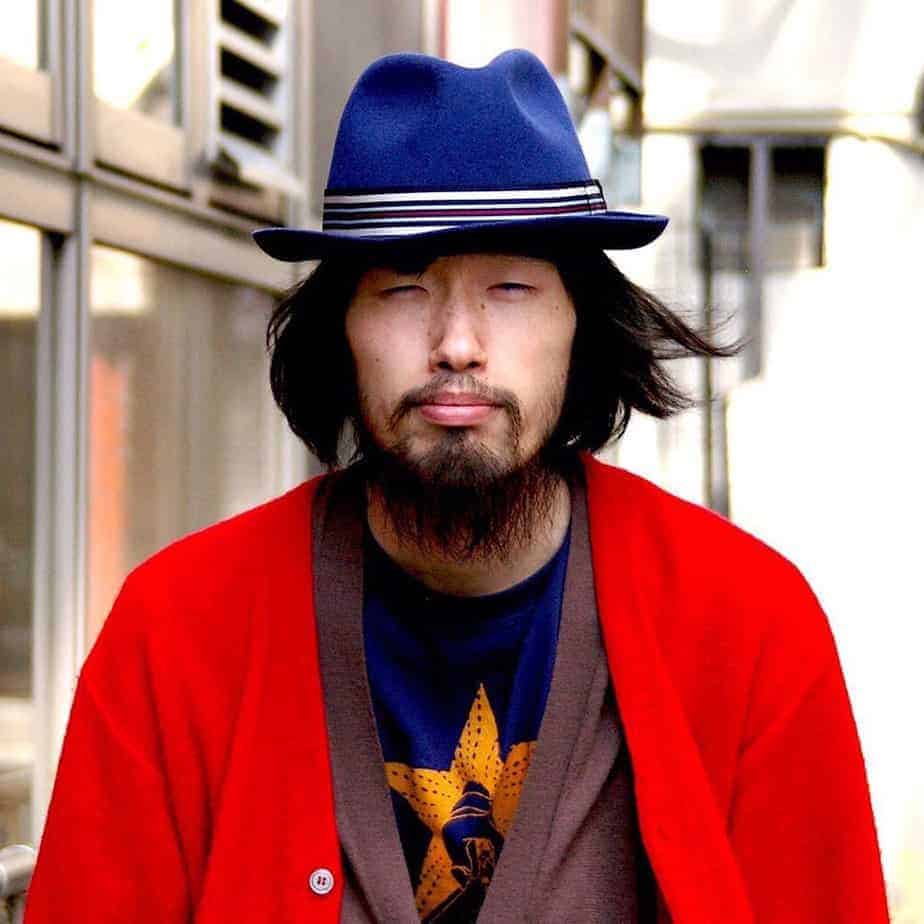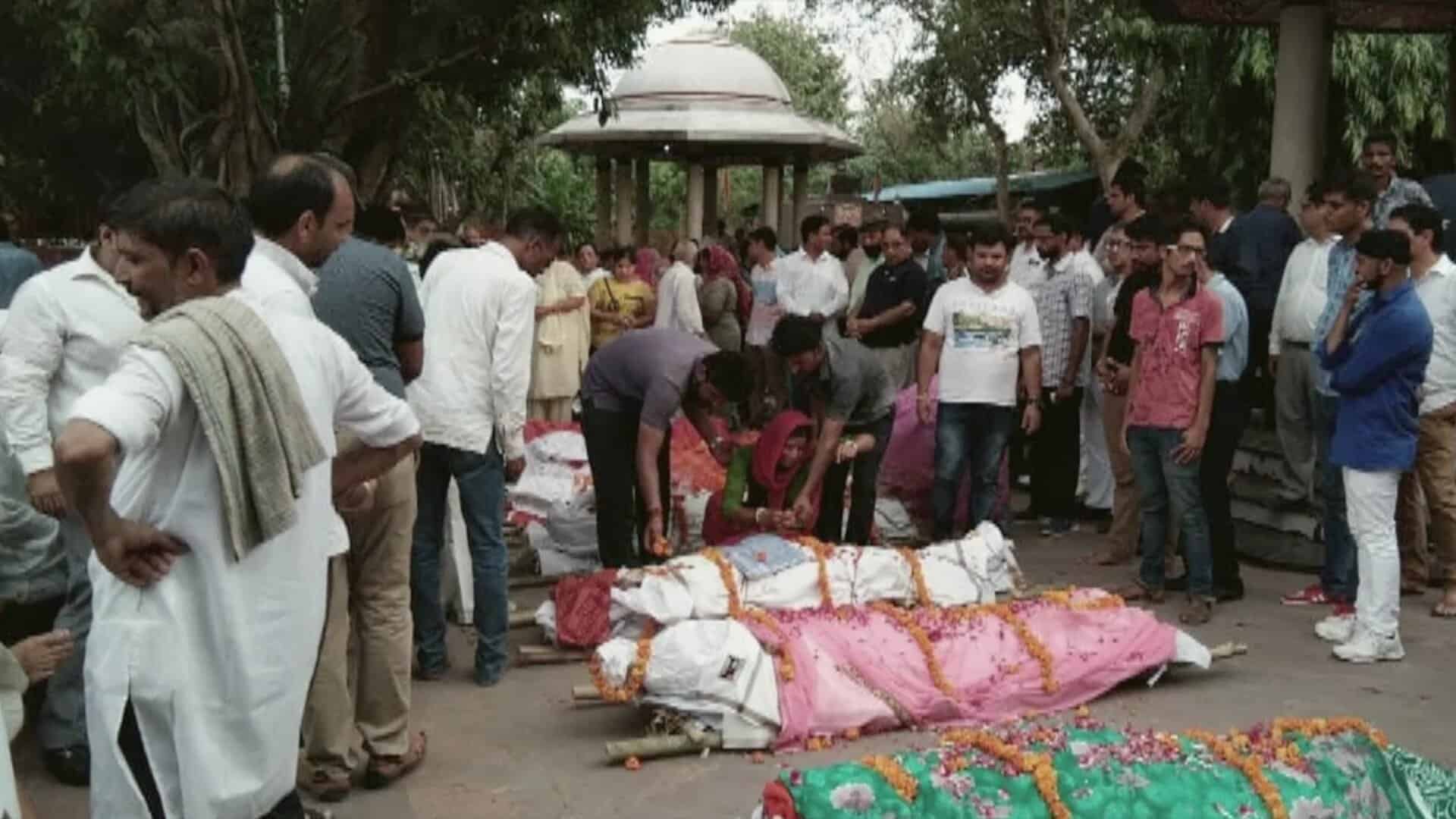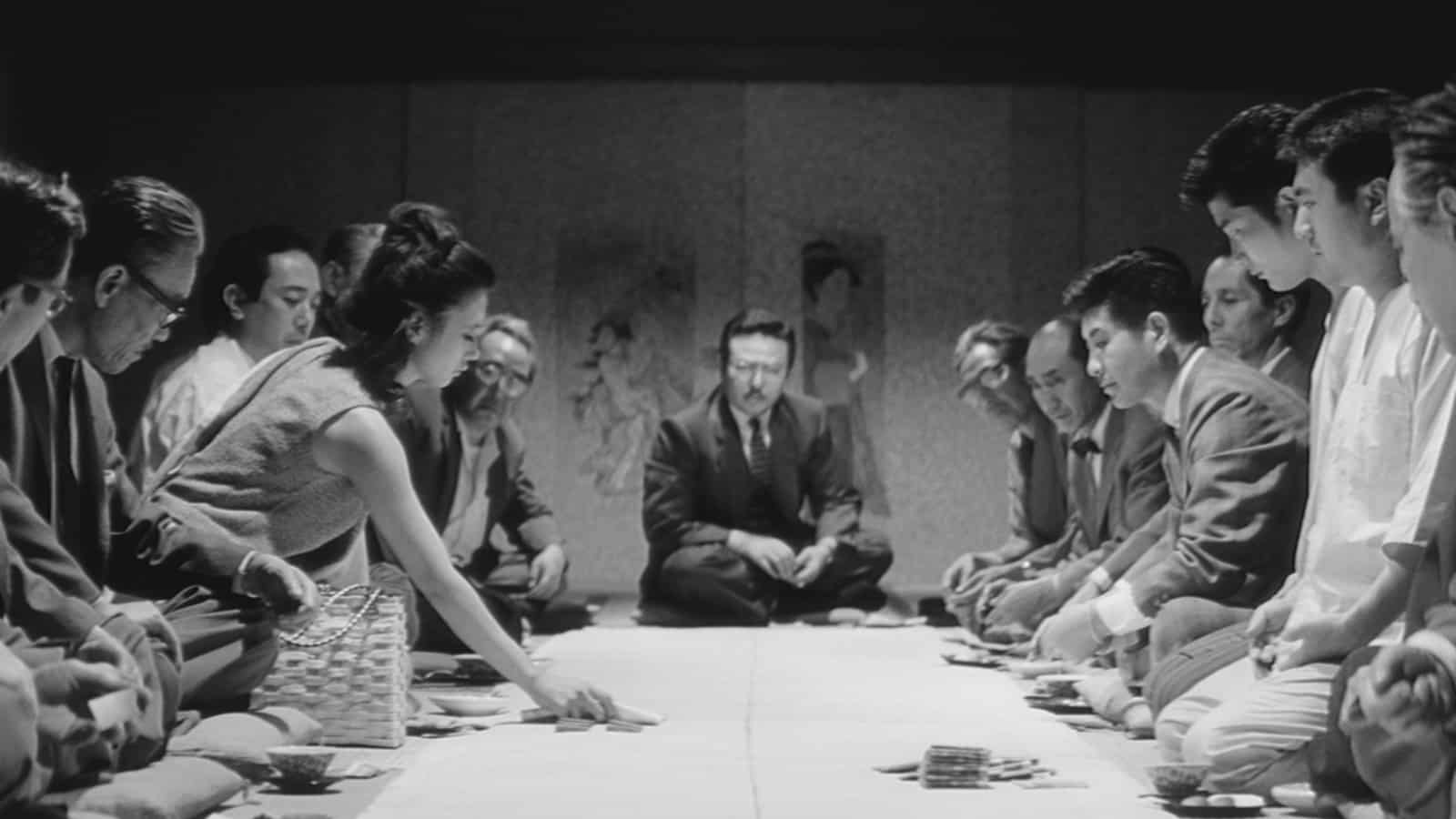Noboru Iguchi is a director and screenwriter. He was born in 1969 and he began his career in the 1990s as a director of porno films. His “Kurushime-san” of 1997, which combined horror and black comedy, revealed his interest in extreme genre cinema. The titles of his next films confirmed this passion – his filmography contains “A Larva to Love”, “Cat-Eyed Boy”, the famous “The Machine Girl” about a girl with an arm replaced with a machine gun, “Zombie Ass” and “Karate-Robo Zaborgar”. Starting with “Flowers of Evil” his filmography started taking a more “serious” turn, although the extremity never abandoned a filmmaker that now counts more than 70 titles as a director.
On the occasion of the release of his two latest films, “Tales of Bliss and Heresy” and “Idol Never Dies”, we speak with him about his personal trauma, the messages he wanted to convey, idols, Bataille, and many other topics.
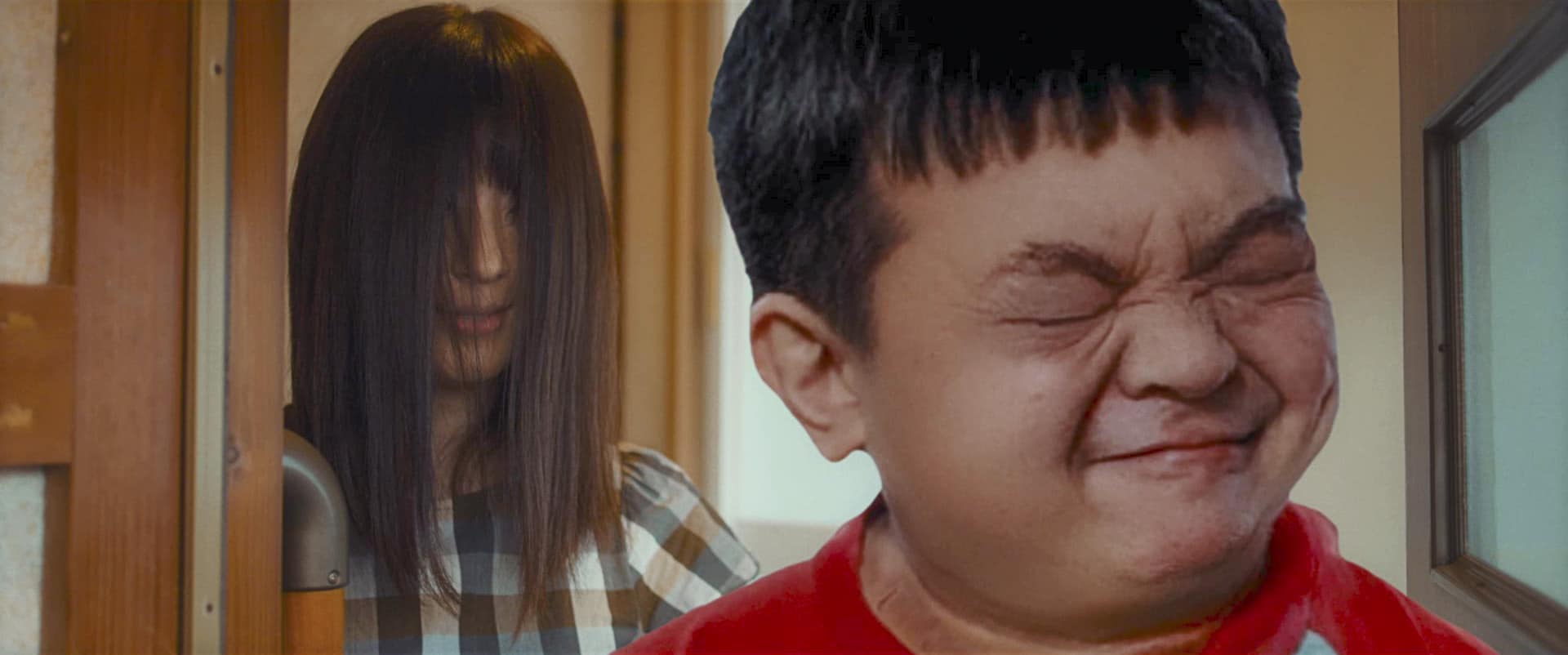
“Tales of Bliss and Heresy” looks like a very personal movie. Is that the case and in what way?
I've suffered from trauma with excretion and sexual things since childhood. Growing up, I felt isolated as a sexual minority and thought I couldn't free myself until I created a film expressing these things. As a film like “Tales of Bliss and Heresy” could never be made through conventional studio channels, I raised funds by utilizing crowdfunding and producing it myself. To boil it down, the film is an autobiographical tale; it is an act of coming out and a rite of passage that allows me to take the next step in my life and career.
What is the message(s) you wanted to convey through the movie? What does love mean to you?
Many forms of love, such as LGBTQ, are understood and more readily accepted nowadays. Still, many people have other peculiar sexual orientations and suffer because they can't come forward with them. I was one of those people. “Tales of Bliss and Heresy” consists of stories of men and women who are unable to love each other through conventional sex. This doesn't brand them as insane, they're just being honest about their core nature. I'll be happy if the audience understands this, and if, for some, the film brings a bit of relief.
Each segment of the omnibus seems to focus on a particular body part. Can you tell us a bit more about that?
“Tales of Bliss and Heresy” is divided into three chapters. In the first Chapter, legs are the focus, arms for Chapter 2, and buttocks for Chapter 3. I'm attracted to each of these body parts because of their dramatic eroticism. To best express the allure of these physical attributes, I felt presenting them in an omnibus form was the way to go.
Check the review of the film
Can you give us some more info regarding the casting, particularly of Minase Yashiro and Airi Yamamoto?
Because it's an independent production, I asked past performers in my films who are close to me to appear. They all understood my aim and were happy to join the production. The cast includes Minase Yashiro, who played the heroine in “The Machine Girl” sixteen years ago. The scenes in which she seduces Yusuke Koide, played by Keita Okada, are alluring; her acting skills have developed greatly over the years.
I've been working with Arisa Nakamura since she was twelve, and sometimes feel like I'm her father. I was surprised to see how in this film, like a gold medalist, she has mastered the stomach-pain performance she first did in “Zombie Ass.” Airi Yamamoto delivered a precise performance based on my improvisational direction. She gave it her all, body and soul; I'm grateful for that. By the way, the young man in Chapter 3 is played by Benio Kokonoha, an actress. Many people think she's a boy. It's a mistake that makes me happy.
You seem to like Bataille a lot. Can you tell us a bit more about this fascination?
I loved the sadomasochistic literature of Junichiro Tanizaki and Yukio Mishima, but because of an excretory illness and anorexia when I was younger, I felt a strong connection to the world of Georges Bataille, who perversely expresses the acts of eating and excretion. In that same sense, I'm also strongly inspired by the world of Japanese immoral novels like “Yapoo, the Human Cattle” by Shozo Numa and the novels of Oniroku Dan.
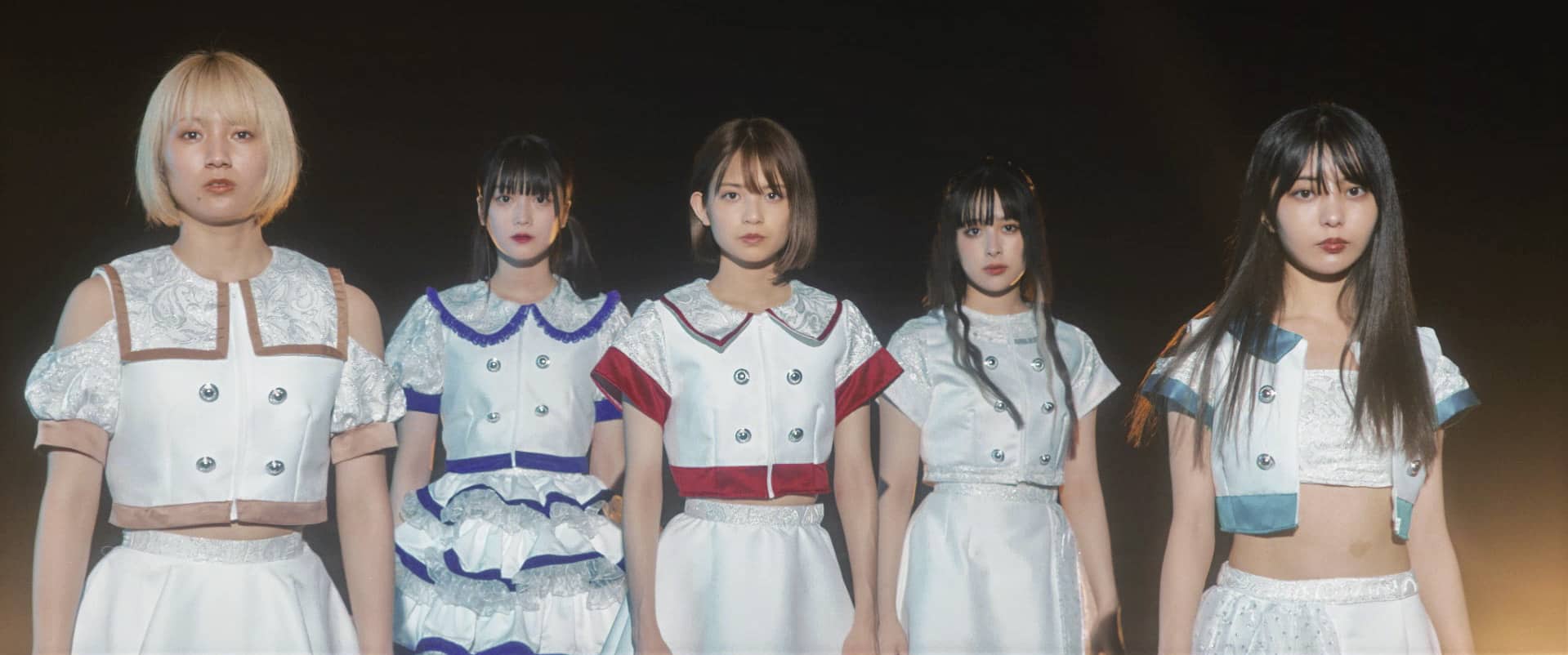
How did you get involved in the “Idol Never Dies Project”?
About two years ago, Gyuzo of TOKYO SHOCK BOYS and a famous organizer of idol shows asked me to make a film. He requested I “shoot a film for idol girls who can't perform live due to the Covid-19 situation.” He entrusted the story to me. I was inspired by their situation and struggle to put on shows during Covid-19 so I created the story based on their circumstance.
Check the review of the film
How was the experience of working with idols and what is your opinion of the whole concept? Do you follow any of them?
I was greatly inspired by Japan's idol boom in the '70s and '80s. Idols have performed in many of my films; I have even managed an idol group myself. It's safe to say that idols are inseparable from my life. In addition, I work with idols often because I frequently direct people who are starting to learn how to act.
Over the past twenty years, idols known as “live idols” – ones who perform in music venues – have grown in popularity. So, it's not just the big-time idols run by entertainment agencies anymore. Live idols sing rock songs and inspire their audience in the way male rock artists used to do. Idols are now evolving from simply being “cute” to being “cool” as well.
Can you tell us a bit about your cooperation with Momoka and Brazil?
Brazil plays her role in “Idol Never Dies” like a grim reaper who asks Momoka to enter a parallel world. Momoka has been acting since childhood but has no singing experience. On the other hand, Brazil is an idol who dances and sings but has no acting experience. I thought that placing two girls with totally opposite careers together would make for interesting and maybe even mysterious chemistry.





